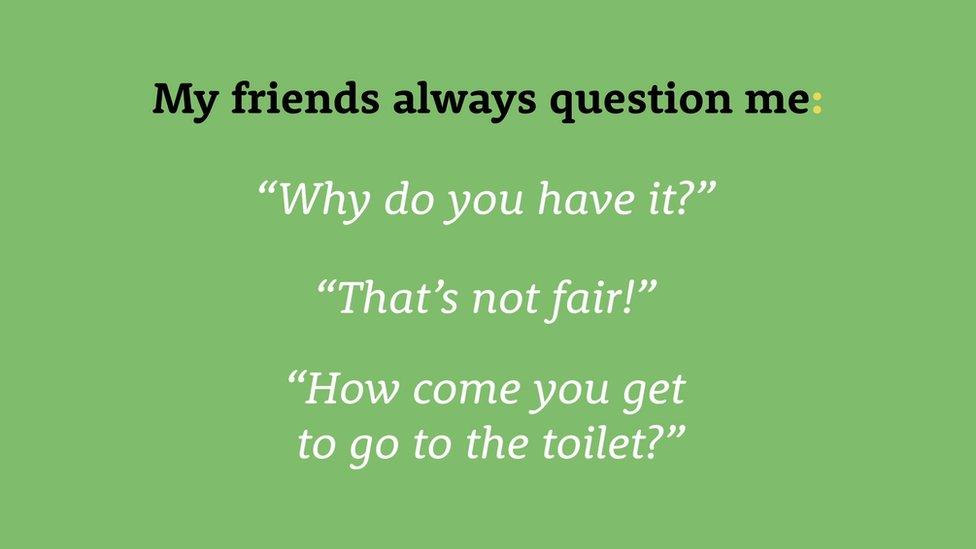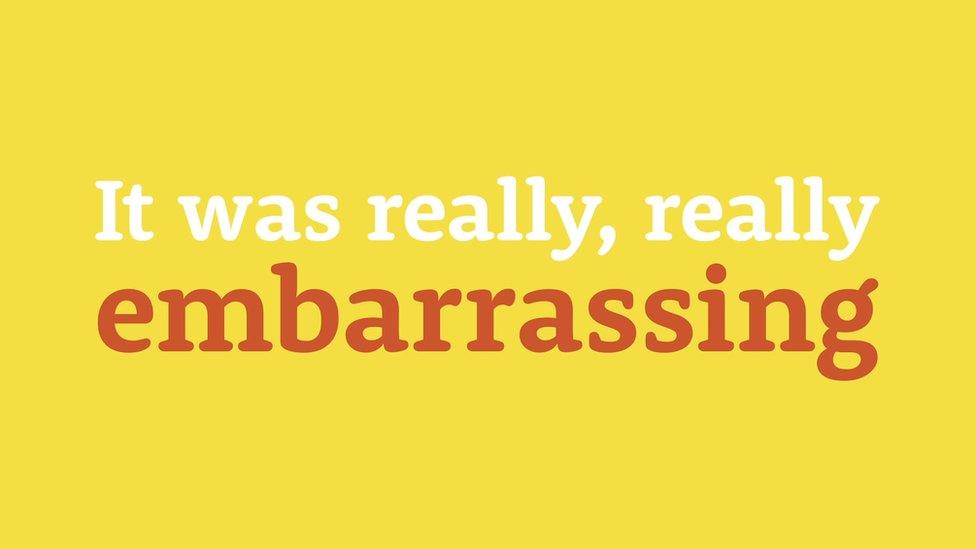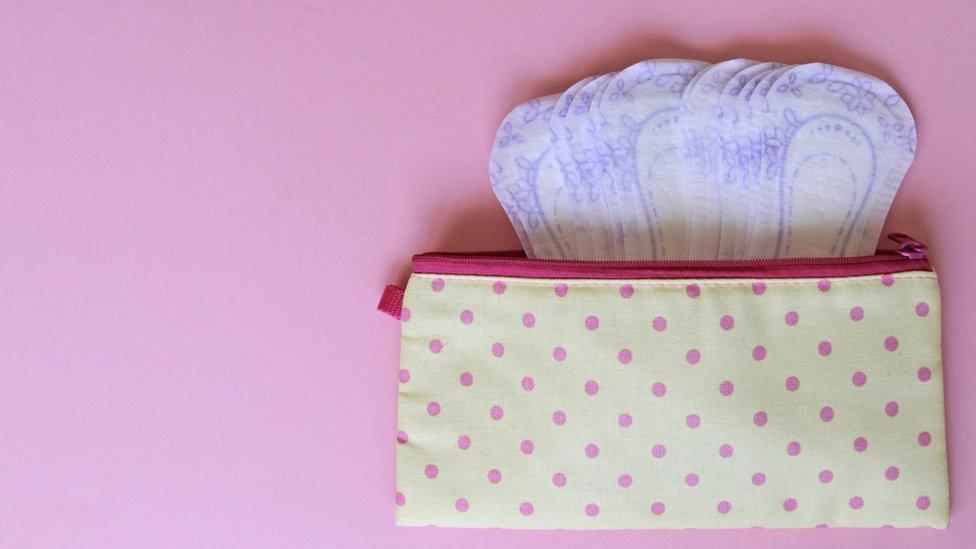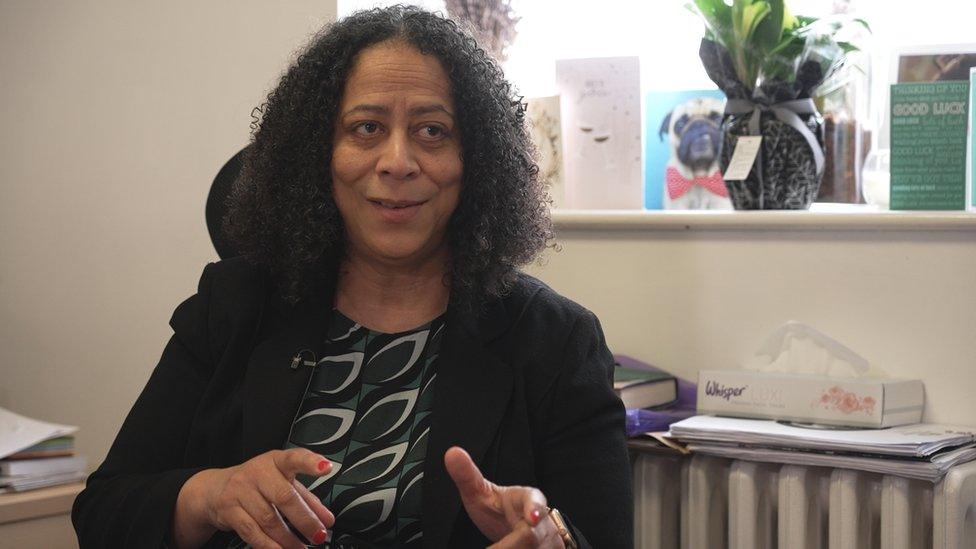School toilets: Charities say rules on access to school toilets are affecting pupils' health
- Published
- comments
School toilets: Are the rules too tough?
Are school rules about toilets too tough?
Charities have told Newsround that strict rules around their use are affecting the health and wellbeing of some children and say the government needs to make changes.
We have also spoken to many children and their parents about issues with their school loos.
They've talked about:
Not being allowed to go to toilets during class
Long waits for loos
Toilets being locked during the day
Trying not to drink water so they don't need to go as often.
One pupil described the queues during lunch and break time as like "waiting for a ride at a theme park... you could wait in line for the whole break time and you wouldn't even be able to go in the end."
The Department for Education - which looks after schools in England - says that all schools "should have arrangements in place to allow pupils to use toilet facilities when they need them" but also says it backs headteachers to have rules to manage pupil behaviour.
Read on to find out more - you can have your say in our vote, and let us know your experience in the comments below.
School toilets: What are the problems?
Newsround has heard from many pupils, mostly from secondary schools, who say they are only allowed to go the loo during break or lunchtime and that toilets are often locked during class - and sometimes at the end of the school day, too.
They told us about long queues at break which sometimes meant there was not enough time for pupils to go.
Some of the children affected had medical issues, but many others didn't, but they still felt the rules in the school were affecting their wellbeing and their confidence.
Many told us that stricter rules had been bought in because of issues around student behaviour. Some of the things they mentioned include vandalism, bullying and vaping.
Surely the answer isn't to lock the toilets, surely the answer is to work with pupils so that there isn't this fear of anti social behaviour.
If you can't see this vote, click here.
Chloe's story
Chloe - we've not used her real name to protect her identity - spoke to Newsround about her experience.
At her school, she says you are only allowed to use the toilet during break time. To use it during class you would usually need a toilet pass which you are able to get if you have a medical reason.
Chloe spoke about one occasion when, during her last lesson of the day, she wasn't allowed to go, despite asking several times. Because the toilets were locked at the end of the school day, it meant it was over an hour before she was able to actually go.
"The day after that happened I just felt really poorly - I couldn't get warm. I was shaking uncontrollably," she said.
Chloe ended up going to hospital and was later diagnosed with a urinary and a bacterial infection.
"Because I've had to hold my wee in so many times, the doctors think that's caused a really bad infection in my bladder, my kidneys, all of that," she explained.
Holding in your pee is generally not considered dangerous but if children don't regularly empty their bladder, bacteria can build up and cause infections.
Chloe was given a toilet pass when she told her school what had happened, but she says the rules haven't changed: "It felt like the school didn't really care."
Where the decision is made to limit pupils' access to toilet facilities, it should be done in collaboration with teachers, parents, pupils and local communities
Are toilet passes a solution?
Freya's story
Schools in England have a duty to support children with medical conditions, like bowel and bladder problems.
Toilet passes, or cards, are a common way of doing this and most charities support their use, but trying to use them can still sometimes lead to problems for children, especially if teachers don't know them.
Freya, again not her real name, has Irritable Bowel Syndrome (IBS). It is a painful condition which often means a frequent and urgent need to use the toilet.

Freya told Newsround she sometimes feels self-conscious about having a toilet pass
She says her school also locks toilets and says that pupils can't go to the loo during lesson time without a pass. Freya says her first day of secondary school was confusing and the experience made her really anxious.
"I didn't know that they locked the toilets. I was so nervous that it aggravated my stomach really bad, so I asked to go to the toilet, and my teacher said: 'You need the toilet pass'."
1. Is there an adult you can talk to about your concerns? Can you raise it directly with a teacher or can you talk to a parent or carer who can approach the school for you?
2. If you are starting secondary school or starting a new school at any age, find out before you go what the toilet policy is at that school so you can be prepared and raise any medical needs you might have.
3. If you and your classmates are worried about any aspect to do with school toilets is there already a system in place like a school council where you might be able to raise it.
4. If you have a medical need, make sure your school is aware of it so they can put a plan in place for you.
Due to her IBS, she was able to get a pass but Freya says that she still gets quizzed about using it and says the experience has affected her mental health.
"I'm really anxious, because I'm going into school every day worrying that one day I might have an accident. My friends always question me like: Why do you have a pass?
"I just feel really nervous answering those questions because I don't want to have to explain to them it's because if I have an accident, I could poo myself."
We would urge all schools to ensure that they have accessible toilets for children with symptoms of Crohn's and Colitis... The lack of quick and easy access to a toilet will be extremely stressful and they could easily have an accident in the class or corridor, which would be traumatising.
Another girl who has Crohn's disease, a condition which causes inflammation of the bowels, told us that her condition is made worse because she has had to hold it for such a long time.
She also has a toilet pass but says if a teacher doesn't know her, she is still refused when she asks to go.

What about children without medical conditions?
Not all children qualify for a toilet pass, or feel like they are able to ask for one.
Tom, who's 12, told Newsround he doesn't want to ask for one because he doesn't have a diagnosed medical need but he says not being able to go is affecting his wellbeing.
"There have been times where I've had a stomach ache but not wanted to go to school because I'm worried I won't be allowed to go to the toilet."
He told Newsround he has seen other children have accidents and is worried it will happen to him: "It feels like I can't concentrate on the lesson, my anxiety comes back, and my emotions, and I'm like no, no, no."
When Newsround contacted Tom's school, they said pupils were not prevented from using the toilets at any time and that there were plenty of facilities.
School toilets: 'I try to avoid going to the school loos' (2021)
We also heard from several children who said that they try to limit their drinking during the school day.
"I don't drink as much so I don't have to go" one child told us. Another said: "You're constantly thinking about needing to go to the toilet."
Another boy said he does a lot of sport and tries to drink a lot of water, but also thinks to himself: "If I drink a lot of water, I probably will need to go to the toilet and my teacher probably won't let me go."
Schools run to a timetable, but children's bladders and bowels don't - and restricting drinking can exacerbate existing bladder and bowel problems - constipation and urinary tract infections - or cause them.
Periods and school toilets

Tina Leslie, the founder of Freedom 4 Girls - a period poverty charity - told Newsround they have also seen a huge increase of parents, carers and children unhappy about the school toilet situation.
Newsround heard from girls who say that they have leaked through their clothes in class because they were not able to go the toilet.
One girl said it can depend on what teacher you have: "Some of the teachers will say yes, if you say you are on your period."
But she says there have been other instances when teachers have said no repeatedly and she just walks out.
Let's Talk About Periods: A Newsround Special
Others have spoken about suffering leaks: "It was really, really embarrassing, lots of people were staring and laughing at me," one pupil said.
Tina Leslie said: "Having to wait to go to the bathroom to change a pad or tampon puts increased stress on pupils if you have a period, whether you have heavy periods or not, you should be able to access toilet facilities."
What are the people in charge saying about school toilets?
ERIC, The Children's Bowel & Bladder Charity, argues that the situation is getting worse rather than better.
Specialist nurse Dr Sarah Fowler told Newsround: "We are calling on the Department of Education to review the way that schools currently implement policies around toilet access and upkeep for the sake of children's health and wellbeing."
A Department for Education spokesperson responded saying: "Whilst we will always back headteachers to take the action required to maintain calm and supportive classrooms, all schools should have arrangements in place to allow pupils to use toilet facilities when they need them.
"Where the decision is made to limit pupils' access to toilet facilities, it should be done in collaboration with teachers, parents, pupils and local communities."
What do teachers say?

Evelyn Forde who is President of the Association of School and College Leaders says some schools have closed toilets because of bad behaviour
Newsround contacted the schools of all the children we spoke to, but just two replied. Tom's school said pupils were not prevented from using the toilets at any time and that there were plenty of facilities.
The headteacher of another school said there had been one instance of a girl being refused, but that it was a one-off occurrence and she has since told teachers that children should be able to go to the toilet when they need it.
We put many of the complaints we heard from pupils to Evelyn Forde who is President of the Association of School and College Leaders (ASCL), a group which represents headteachers across the UK.
She told Newsround that schools have had to deal with a lot of "challenging" behaviour following Covid: "I think the challenge for schools... is really linked to behaviour and it is really linked to young people really struggling to sometimes regulate and stay in the classroom.
"Some young people are finding reasons not to be in lessons and that's why we're seeing a real spike in requests to go to the toilet."
She says they had to close off some of the toilets at her school because of the "challenging behaviour".
"There is a toilet that is available from morning right to the end of the school day but young people would have to request that, you know you can't just walk out of a lesson," she said.
In the course of our investigation, children have told us they are concerned about behaviour in school toilets and many think it has got worse recently.
Despite this the children we spoke to didn't think it was a reason for schools to lock toilets or restrict access to those who needed them.
What are school toilets rules around the UK?
Rachel de Souza says the state of school toilets and access is a major issue.
The rules can be different, depending on where in the UK you go to school.
The Welsh government has detailed guidance for schools which says schools have an objective to "keep all toilets open and available to learners throughout the school day".
In Northern Ireland, guidance published in 2003 says that there should be a toilet for every 15 pupils, with separate facilities for girls and boys.
Scotland's school toilet laws are from 1967 and say that toilets must have a suitable partition with doors and the current rules state that half toilets should be for boys and half for girls.
In England, 2012 guidelines from the Department for Education state that suitable toilet and washing facilities must be provided for pupils, with separate toilets for girls and boys over the age of eight.
- Published17 September 2023

- Published9 December 2021

- Published8 March 2021

